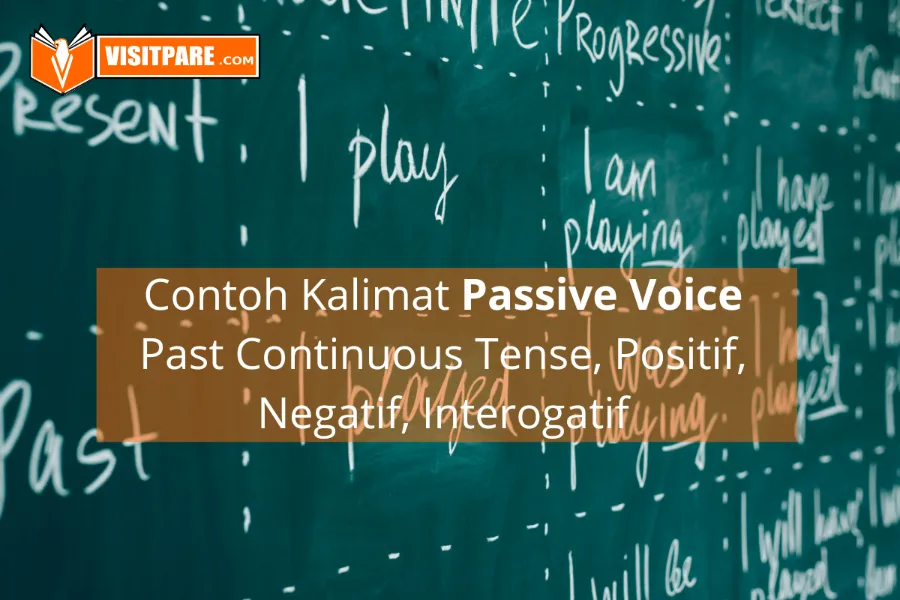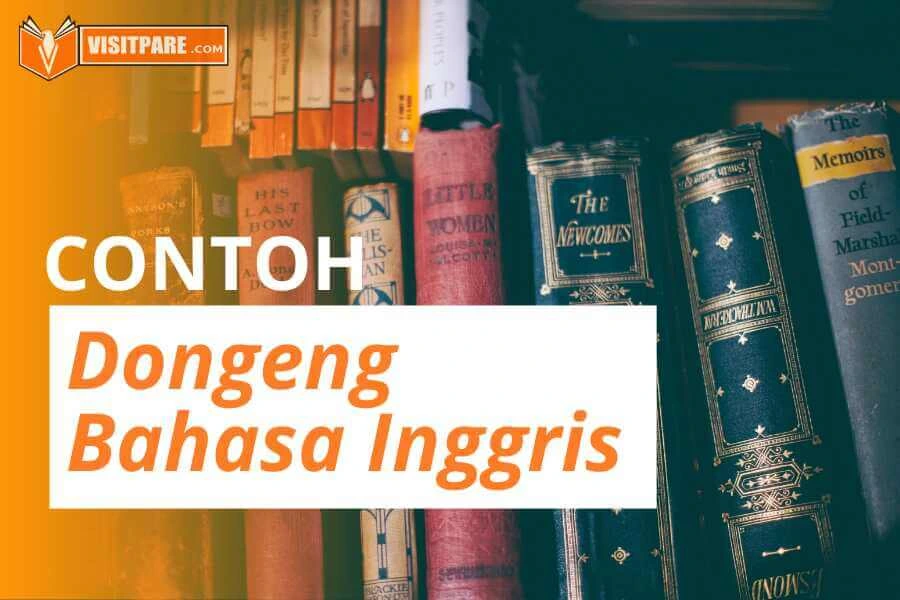
Cerita atau dongeng merupakan media pembelajaran dalam berbagai tingkatan sekolah. Bahkan, anak kuliahan masih menggunakan cerita mitos, legenda, dan fabel untuk meningkatkan skill berbahasa Inggris. Yuk, cari tahu contoh dongeng atau legenda bahasa Inggris singkat di sini!
Media pembelajaran memang bisa membantu pembelajaran menjadi lebih menyenangkan. Apalagi jika materinya adalah bahasa asing. Nah, misalnya kamu lebih menyukai kisah fiksi tentang dunia magic, kisah kepahlawanan atau sejarah, kamu pun bisa belajar bahasa Inggris dari cerita kesukaanmu itu.
Nah, sebagaimana dahulu visitpare pernah menulis tentang cara mengajarkan anak bahasa inggris sejak dini, maka metode belajar melalui dongeng juga sangat bagus juga, berikut rekomendasinya beberapa dongeng dalam bahasa inggris yang bisa juga dibuat matreri belajar!
Daftar Dongeng Bahasa Inggris Singkat dan Pesan Moralnya
Dibalik serunya mendengarkan dongeng bahasa Inggris singkat, ternyata ada banyak manfaat bisa kita dapatkan. Guru juga sering menjadikannya sebagai bahan storytelling, yaitu melalui metode belajar mendongeng. Kamu pun bisa belajar berbagai skill bahasa Inggris dari sini, mulai dari reading, speaking, listening, pronunciation, dan sebagainya.
1. The Princess and The Pea
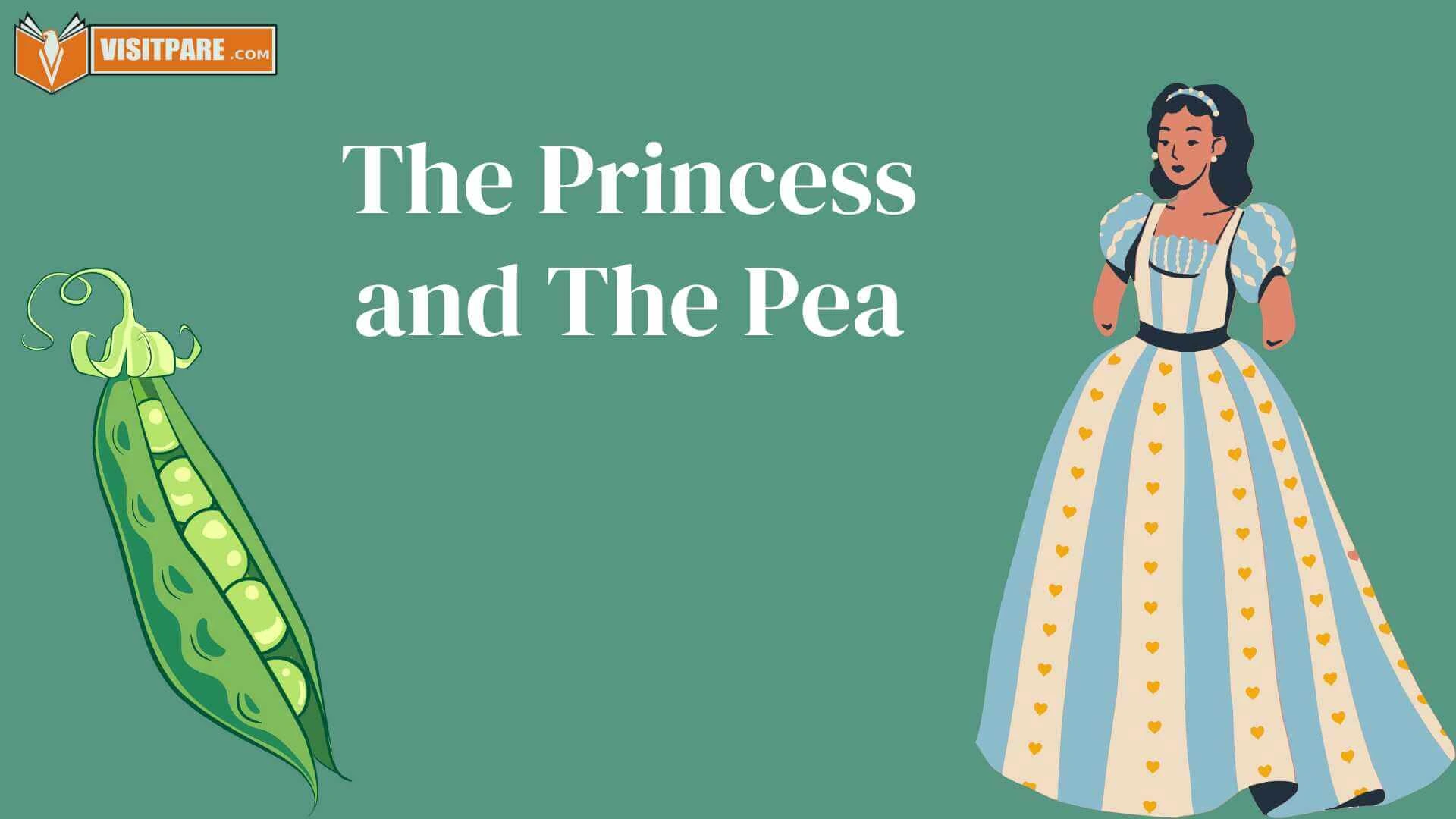
Once upon a time there was a prince who wanted to marry a princess; but she would have to be a real princess. He travelled all over the world to find one, but nowhere could he get what he wanted.
There were princesses enough, but it was difficult to find out whether they were real ones. There was always something about them that was not as it should be. So he came home again and was sad, for he would have liked very much to have a real princess.
One evening a terrible storm came on, there was thunder and lightning, and the rain poured down in torrents. Suddenly a knocking was heard at the city gate, and the old king went to open it.
It was a princess standing out there in front of the gate. But, good gracious! What a sight the rain and the wind had made her look. The water ran down from her hair and clothes; it ran down into the toes of her shoes and out again at the heels. And yet she said that she was a real princess.
“Well, we’ll soon find that out,” thought the old queen. But she said nothing, went into the bedroom, took all the bedding off the bedstead, and laid a pea on the bottom; then she took twenty mattresses and laid them on the pea, and then twenty eider-down beds on top of the mattresses.
On this the princess had to lie all night. In the morning she was asked how she had slept.
“Oh, very badly!” said she. “I have scarcely closed my eyes all night. Heaven only knows what was in the bed, but I was lying on something hard, so that I am black and blue all over my body. It’s horrible!”
Now they knew that she was a real princess because she had felt the pea right through the twenty mattresses and the twenty eider-down beds. Nobody but a real princess could be as sensitive as that.
So the prince took her for his wife, for now he knew that he had a real princess; and the pea was put in the museum, where it may still be seen, if no one has stolen it. There, that is a true story.
Contoh dongeng bahasa Inggris yang simple di atas berjudul The Princess and The Pea karangan Hans Christian Andersen. Ceritanya adalah tentang seorang ratu yang menciptakan sayembara untuk mencari putri sejati.
Dongeng tersebut banyak menggunakan simple past tense. Kamu akan belajar tentang penggunaan kata was dan were. Sedangkan model verb 2 lebih sering digunakan karena membahas cerita yang terjadi di waktu lampau. Adapun contoh kata kerjanya seperti thought, had, closed, ran, felt, took dan asked.
Lalu moral value tentang kisah menarik tersebut di antaranya:
- Jadilah orang jujur dan jangan suka berbohong.
- Jangan menilai orang lain dari penampilan luarnya saja. Kita harus mendalami karakter mereka terlebih dahulu.
2. Little Red Riding Hood, Si Gadis Berjubah Merah
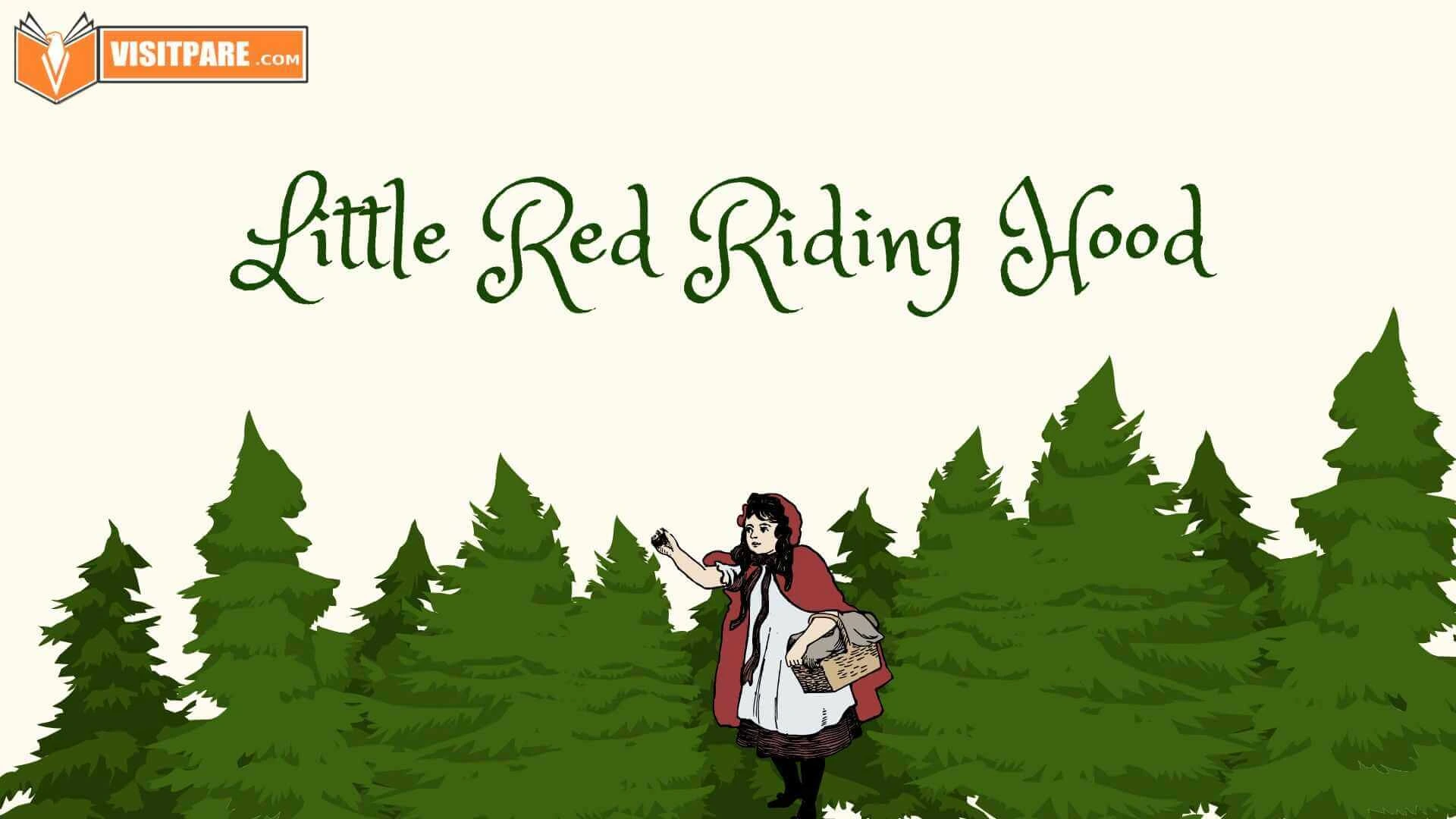
Little Red Riding Hood lived in a wood with her mother. One day Little Red Riding Hood went to visit her granny. She had a nice cake in her basket. On her way Little Red Riding Hood met a wolf.
“Hello!” said the wolf. “Where are you going?”
“I’m going to see my grandmother. She lives in a house behind those trees.” The wolf ran to Granny’s house and ate Granny up. He got into Granny’s bed. A little later, Little Red Riding Hood reached the house. She looked at the wolf.
“Granny, what big eyes you have!”
“All the better to see you with!” said the wolf.
“Granny, what big ears you have!”
“All the better to hear you with!” said the wolf.
“Granny, what a big nose you have!”
“All the better to smell you with!” said the wolf.
“Granny, what big teeth you have!”
“All the better to eat you with!” shouted the wolf. A woodcutter was in the wood. He heard a loud scream and ran to the house. The woodcutter hit the wolf over the head. The wolf opened his mouth wide and shouted and Granny jumped out. The wolf ran away and Little Red Riding Hood never saw the wolf again.
Cerita dongeng bahasa Inggris ini merupakan karangan fiksi Charles Perrault. Tokoh utamanya adalah gadis kecil yang sering menggunakan jubah merah pemberian sang nenek tercinta.
Banyak kosakata baru di dalam cerita ini, seperti:
- Granny [ˈɡræni] : nenek
- Wolf [wʊlf] : serigala
- Woodcutter [ˈwʊdkʌtə(r)] : penebang pohon
- Wood [ˈwʊd] : kayu atau pohon
- House [haʊs] : rumah
Sementara itu, moral value yang bisa kamu dapatkan melalui kisah Little Red Riding Hood adalah jangan mudah percaya terhadap orang asing dan bersikaplah cerdik untuk menghadapi berbagai masalah.
3. The Hungry Mouse
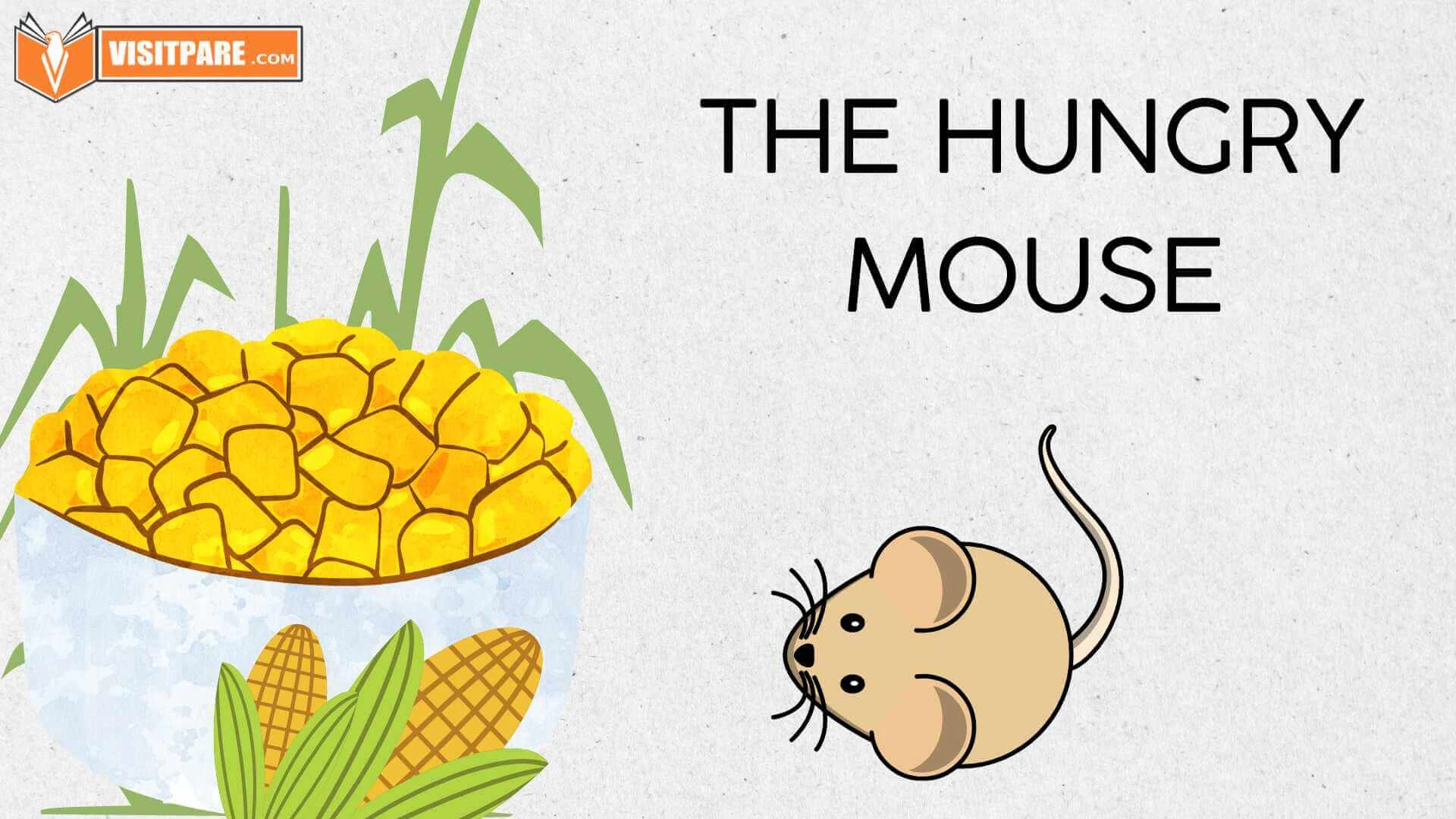
A mouse was having a very bad time. She could find no food at all. She looked here and there, but there was no food, and she grew very thin. At last the mouse found a basket, full of corn. There was a small hole in the basket, and she crept in. She could just get through the hole.
Then she began to eat the corn. Being very hungry, she ate a great deal, and went on eating and eating. She had grown very fat before she felt that she had had enough.
When the mouse tried to climb out of the basket, she could not. She was too fat to pass through the hole.
“How shall I climb out?” said the mouse. “oh, how shall I climb out?”. Just then a rat came along, and he heard the mouse.
“Mouse,” said the rat, “if you want to climb out of the basket, you must wait till you had grown as thin as you were when you went in.”
Dongeng bahasa Inggris anak ini menceritakan tentang seekor tikus kelaparan. Si tikus menemukan makanan di sebuah lubang dan masuk ke dalamnya. Sayang sekali dia terjebak sampai sulit ke luar kembali.
Ada banyak vocabulary menarik untuk menambah penguasaan kosakatamu melalui cerita ini. Mungkin beberapa di antaranya belum kamu ketahui bahkan masih terasa asing. Contohnya saja seperti kata-kata berikut!
- Basket [ˈbɑːskɪt] : keranjang
- Corn [kɔːn] : jagung
- Hole [həʊl] : lubang
- Climb out [klaɪm aʊt] : memanjat keluar
- Rat [ræt] : tikus
Sekarang kita ambil pesan positif dari dongeng bahasa Inggris bergambar The Hungry Mouse. Kisah tersebut mengajarkan kita untuk tidak serakah dan saling berbagi. Sikap buruk itu akan mendatangkan kerugian pada diri sendiri.
4. The Ant and The Grasshopper, Kisah Belalang yang Sombong
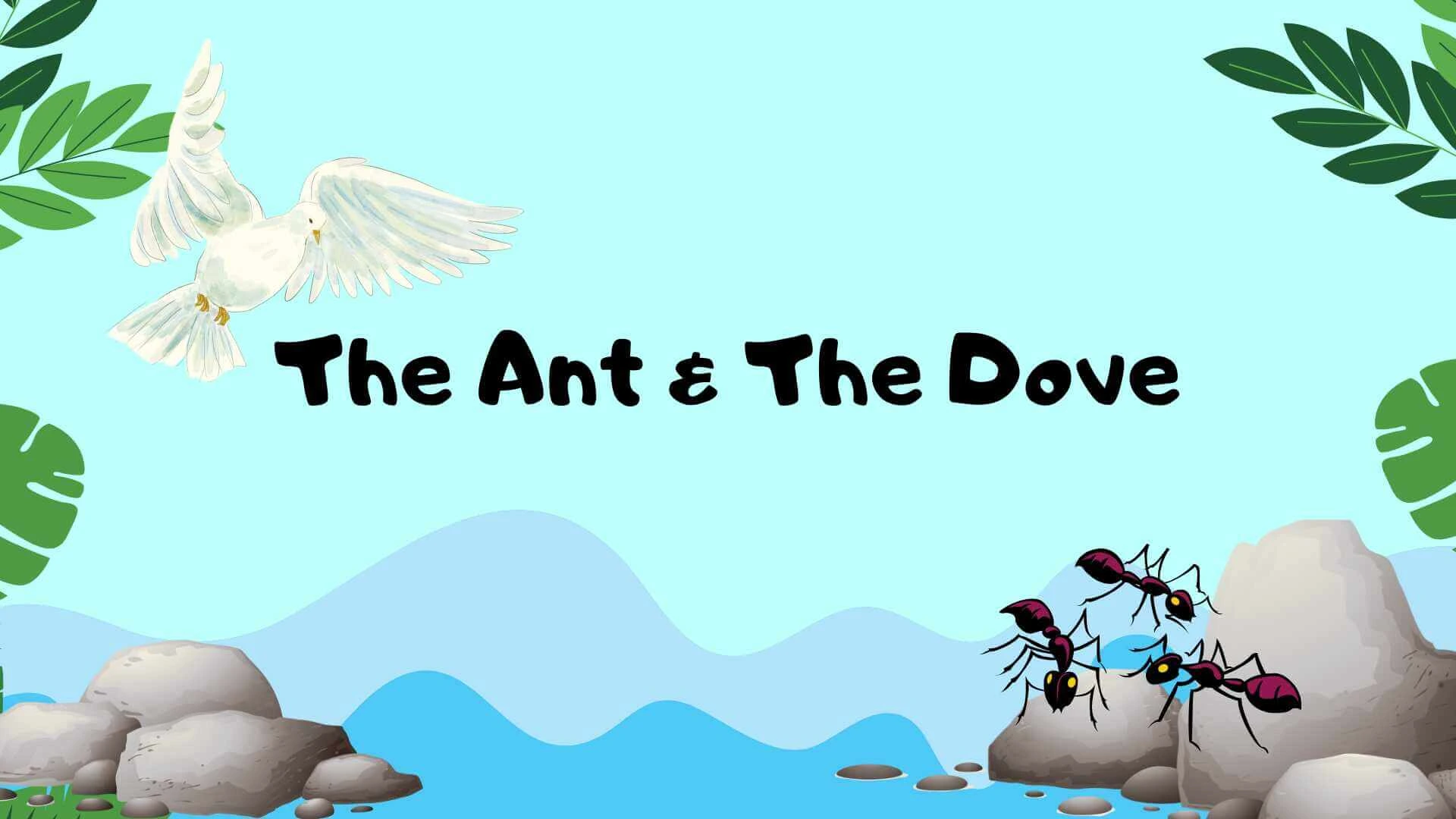
One bright day in late autumn, a family of Ants was bustling about in the warm sunshine, drying out the grain they had stored up during the summer, when a starving Grasshopper, his fiddle under his arm, came up and humbly begged for a bite to eat.
“What!” cried the Ants in surprise, “haven’t you stored anything away for the winter? What in the world were you doing all last summer?”
“I didn’t have time to store up any food,” whined the Grasshopper; “I was so busy making music that before I knew it, the summer was gone.”
The Ants shrugged their shoulders in disgust.
“Making music, were you?” they cried. “Very well; now dance!” And they turned their backs on the Grasshopper and went on with their work.
Ini merupakan contoh dongeng bahasa Inggris singkat mengenai kehidupan para binatang. Ada seekor belalang pemalas dan gerombolan semut pekerja di suatu musim panas.
Adapun moral value di dalam kisah ini yaitu sikap saling tolong-menolong kepada sesama makhluk yang sedang membutuhkan. Selain itu, kita dilarang bersikap sombong serta menjadi pemalas.
Simak beberapa contoh vocabulary baru pada dongeng The Ant and The Grasshopper berikut:
- Grasshopper [ˈɡrɑːshɒpə(r)] : belalang
- Ants [ænt] : semut
- Summer [ˈsʌmə(r)] : musim panas
- Food [fuːd] : makanan
- Surviving [səˈvaɪv] : bertahan hidup
5. The Ant and The Dove
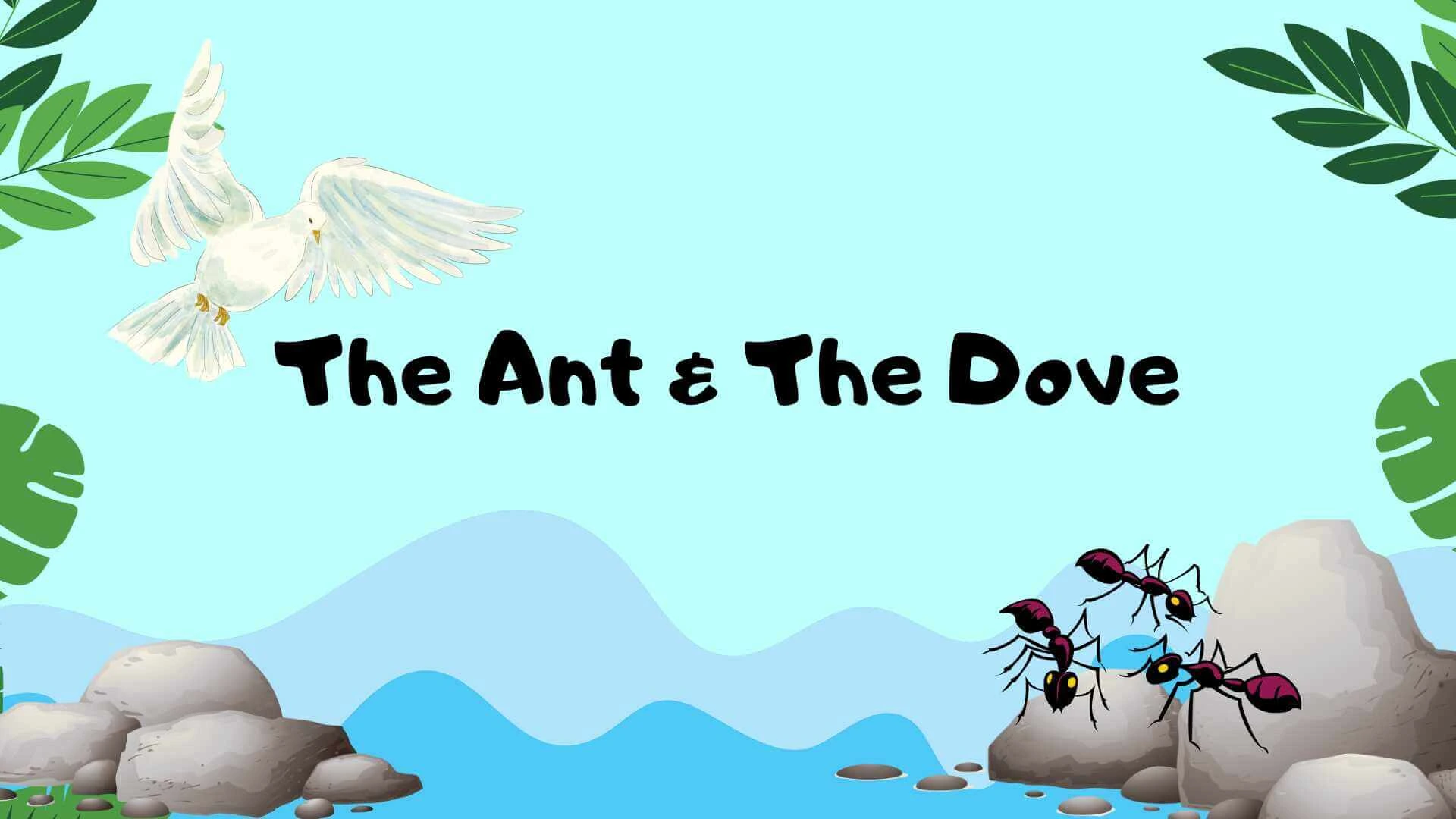
Satu lagi dongeng bahasa Inggris tentang hewan yang mempunyai nasihat baik tentang kehidupan. Judulnya The Ant and The Dove, yang bercerita mengenai dua binatang hutan.
Berikut ini teks dongengnya!
One hot day, an ant was searching for some water. After walking around for some time, she came to a spring. To reach the spring, she had to climb up a blade of grass. While making her way up, she slipped and fell into the water.
She could have drowned if a dove up a nearby tree had not seen her. Seeing that the ant was in trouble, the dove quickly plucked off a leaf and dropped it into the water near the struggling ant. The ant moved towards the leaf and climbed up there. Soon it carried her safely to dry ground. Just at that time, a hunter nearby was throwing out his net toward the dove, hoping to trap it.
Guessing what he was about to do, the ant quickly bit him on the heel. Feeling the pain, the hunter dropped his net. The dove was quick to fly away to safety.
Dongeng bahasa Inggris pendek di atas juga mengandung berbagai vocabulary menarik dan pesan moral untuk saling tolong-menolong. Berikut ini kosakata terbaru untuk kamu hafalkan!
- Grass [ɡrɑːs] : rumput
- Slipped [ˌslɪpt] : tergelincir
- Dove [dʌv] : burung merpati
- Hunter [ˈhʌntə(r)] : pemburu
- Leaf [liːf] : daun
- Nearby [nɪəˈbaɪ] : dekat
- Trouble [ˈtrʌbl] : masalah
6. The Fox and The Grapes
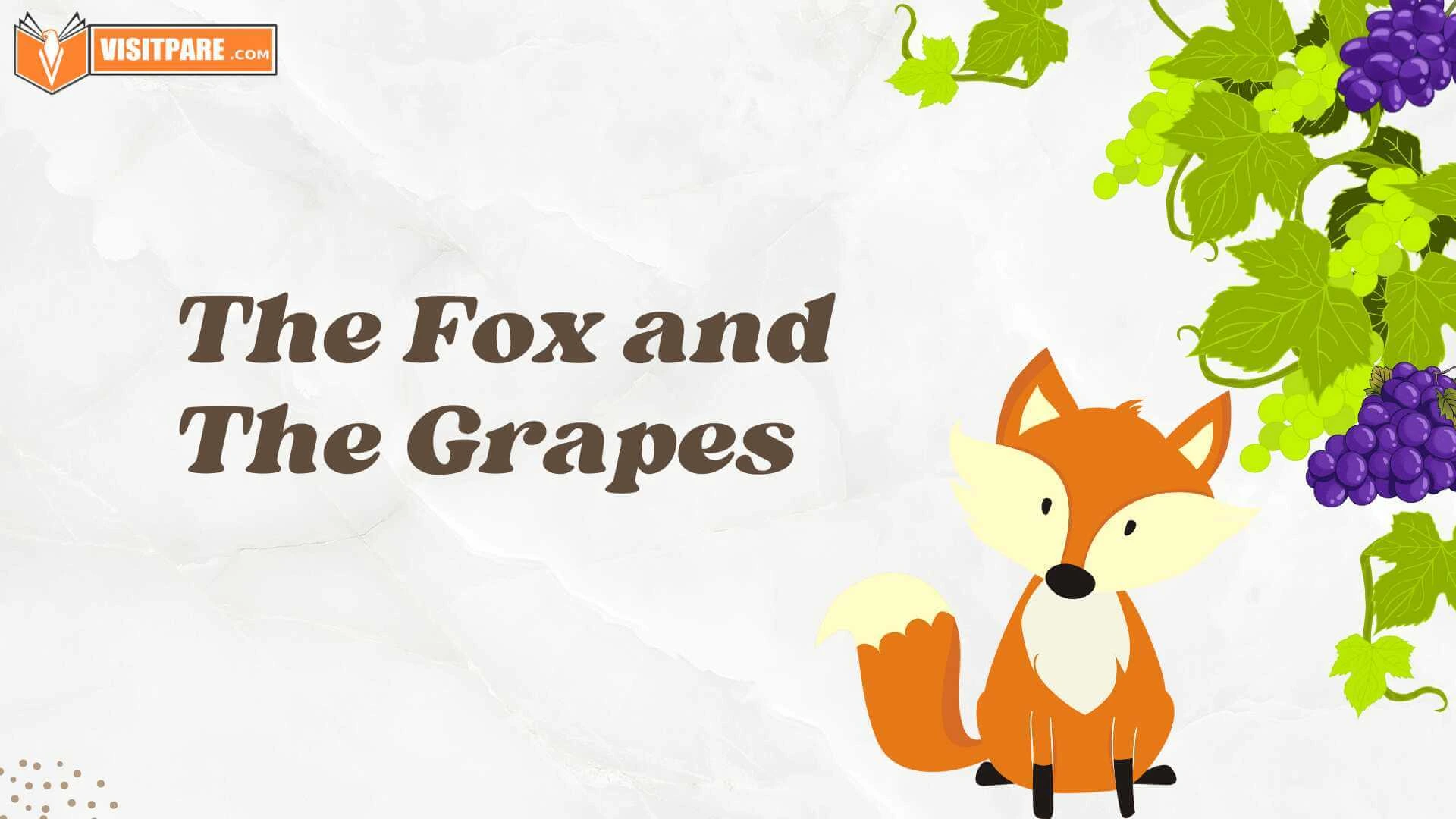
A Fox one day spied a beautiful bunch of ripe grapes hanging from a vine trained along the branches of a tree. The grapes seemed ready to burst with juice, and Fox’s mouth watered as he gazed longingly at them.
The bunch hung from a high branch, and the Fox had to jump for it. The first time he jumped, he missed it by a long way. So he walked off a short distance and took a running leap at it, only to fall short once more. Again and again, he tried, but in vain.
Now he sat down and looked at the grapes in disgust.
“What a fool I am,” he said. “Here I am wearing myself out to get a bunch of sour grapes that are not worth gaping for.”
And off he walked very, very scornfully.
Mengapa cerita bahasa Inggris anak The Fox and The Grapes sering muncul di soal-soal pelajaran? Ternyata terdapat nasihat baik untuk anak-anak walaupun teksnya cukup pendek.
Beberapa kosakata baru mungkin akan kamu dapatkan melalui cerita dongeng bahasa Inggris ini. Dimulai dari kata kerja (Verb), kata benda (Noun), hingga Adverb.
– Afternoon [ˌɑːftəˈnuːn] : siang hari
– Branch [brɑːntʃ] : ranting pohon
– Quench [kwentʃ] : memuaskan
– Probably [ˈprɒbəbli] : mungkin
– Proceeded [prəˈsiːd] : melanjutkan
– Sour [ˈsaʊə(r)] : asam atau masam
– Finally [ˈfaɪnəli] : akhirnya
– Step back [step bæk] : mundur
– Grape [ɡreɪp] : buah anggur
Sekarang kita mengambil pesan dari kisah The Fox and The Grapes sebagai bahan pelajaran hidup. Rubah mengajarkan tentang mudahnya membenci sesuatu yang tidak bisa kita miliki. Padahal tidak semua hal terjadi sesuai keinginan bahkan ketika kamu sudah membuat rencana sekalipun.
Penutup
Membaca cerita fiksi seperti contoh di atas dapat membuat anak-anak pintar belajar bahasa Inggris dengan cepat. Ketika perasaan mereka senang maka mereka lebih mudah memahami informasi di dalamnya.
Ada banyak dongeng bahasa Inggris singkat lain dengan level berbeda. Kamu sesuaikan saja dengan kebutuhan karena tingkat kesulitannya juga bermacam-macam.






